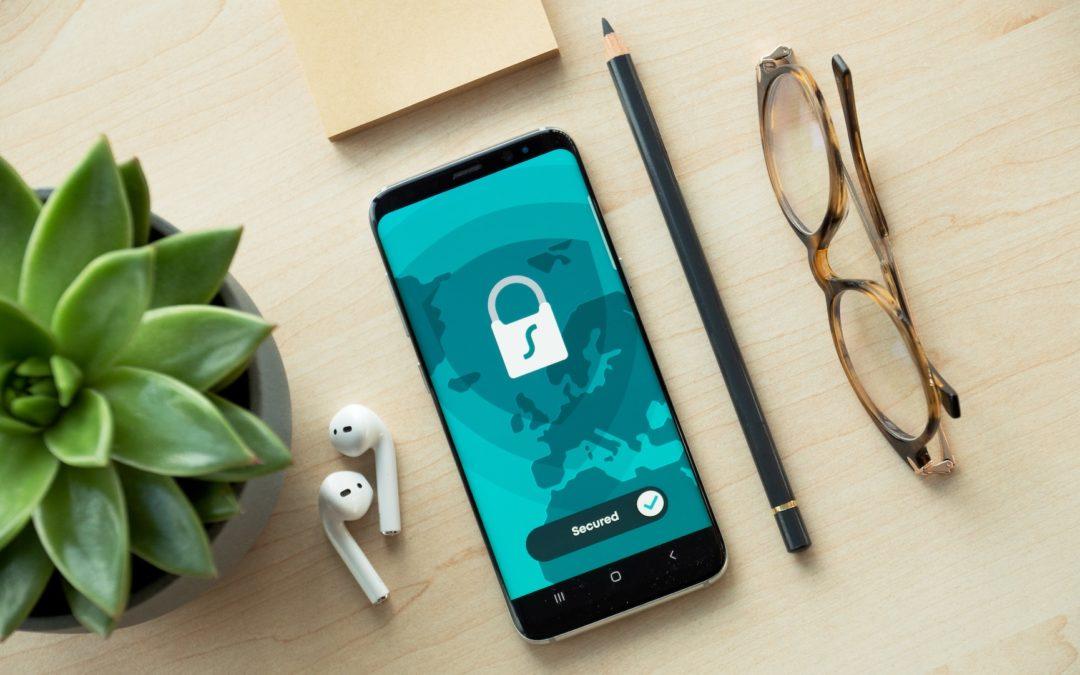Creating strong security questions is essential for account recovery and verification, but it’s also important to avoid questions with easily guessable or publicly available answers. Here are 40 security questions that can help enhance the security of your accounts, along with some explanations and other information in securing your online account.
What is a Security Question
A security question is a method used in online account security and recovery to verify a user’s identity when they forget their password or need to regain access to their account. When setting up an online account, the user is typically asked to select security questions and provide answers to them. These questions and answers are stored by the service provider and can be used to verify the user’s identity if they ever need to reset their password or recover their account.
Security questions are designed to be something only the account owner should know, such as personal information, preferences, or experiences. When the user forgets their password, they can initiate an account recovery process in which they are prompted to answer one or more of these security questions. If their answers match the ones previously provided during account setup, they can regain access to their account or reset their password.
The purpose of security questions is to add an additional layer of security to the account recovery process, making it more difficult for unauthorized individuals to gain access to someone else’s account. However, it’s essential to choose security questions and answers carefully and avoid easily guessable or publicly available information to ensure the security of your account.
While security questions are a commonly used method for account recovery, they have their limitations. The effectiveness of security questions can vary because the answers may be based on information that is not always private or secure, especially with the amount of personal information that people share on social media. Additionally, if a hacker has enough information about you, they might be able to guess the answers to your security questions. Therefore, it’s crucial to be selective when choosing security questions and to use additional security measures like two-factor authentication (2FA) for enhanced protection.
Examples of the Best Security Questions
1. What was the name of your first pet?
– Pets’ names are usually not publicly available, but make sure it’s not something easily guessed or found on social media.
2. What is your favorite book?
– Choose a book that’s not widely known and not listed on your social profiles.
3. In which city were you born?
– This is relatively secure information as long as your birthplace is not publicly shared.
4. What is your favorite childhood movie?
– Similar to the favorite book question, select a lesser-known movie.
5. Who was your childhood best friend?
– A good choice if you keep this information private.
6. What is your favorite food?
– Choose a less common favorite dish to make it harder to guess.
7. What was the model of your first car?
– A typical security question that’s not easily guessed.
8. What is your mother’s middle name?
– This can be secure if not shared publicly.
9. Where did you go for your first vacation?
– Use a specific location that’s not prominently mentioned on social media.
10. What is your favorite sports team?
– This should be a niche team, not a popular one.
11. What is your favorite color?
– While this is a common question, select a less obvious favorite color.
12. What is your favorite historical event?
– Choose an event that’s not widely known.
13. What is your favorite holiday destination?
– Pick a less common travel destination.
14. What is your favorite song?
– Choose a song that’s not listed on your profiles.
15. Who is your favorite teacher?
– Use the name of a teacher who isn’t mentioned online.
16. What is the first name of your childhood hero?
– Make sure this is someone not widely known.
17. What is the name of your favorite fictional character?
– Select a character from a less popular work.
18. What is your favorite hobby?
– If it’s not something you frequently discuss online, it can be secure.
19. What is the name of your first employer?
– Use the name of an employer not publicly disclosed.
20. What is your favorite quote?
– Pick a quote not widely associated with you.
21. What was the name of your first stuffed animal?
– Many people have a sentimental attachment to their first toy. Choose a name that’s not easy to guess or find online.
22. What is the name of the street you grew up on?
– Avoid choosing a street name that’s public knowledge or frequently mentioned in your conversations.
23. What was your favorite game as a child?
– Opt for a less common game, not one that’s trending or widely recognized.
24. What was the first concert you attended?
– Use a specific band or artist, preferably one that isn’t a household name.
25. What is the name of a childhood neighbor?
– Select someone whose name isn’t widely known or searchable.
26. What is the name of your first teacher?
– Choose someone from early schooling that you haven’t publicly referenced.
27. What was the first thing you learned to cook?
– This can be personal and unique, especially if it’s not a common dish.
28. What is the name of a place you always wanted to visit but haven’t yet?
– This is less likely to be known unless you’ve shared it broadly.
29. What was your favorite subject in school?
– Avoid typical answers like “math” or “science” to increase uniqueness.
30. What is your least favorite vegetable?
– This quirky question can be surprisingly effective if kept private.
31. What is the title of the first movie you watched in a theater?
– People rarely share this detail, making it a good security question.
32. What was your childhood dream job?
– Use a specific and perhaps less conventional aspiration.
33. What is the name of your first crush?
– Be cautious with this one if the name has ever been public.
34. What was the make of your first bicycle?
– This question works well if the answer is specific and not commonly discussed.
35. What is your favorite homemade dish?
– A family recipe or unique dish works well here.
36. What is the name of your first friend in college?
– This can be personal and not widely shared.
37. What is the name of a park you visited often as a child?
– Opt for a lesser-known local spot.
38. What was the first foreign language you learned?
– Use this if it’s not widely discussed in your online presence.
39. What is the name of your favorite high school teacher?
– Avoid names that might be found in yearbooks or social media.
40. What was your favorite TV show growing up?
– Select a show that isn’t a well-known classic or trending now.
Tips For Choosing Best and Secured Security Questions
Selecting strong and secure security questions is crucial for enhancing the security of your online accounts. Here are some tips for choosing the best and most secure security questions:
- Avoid Easily Guessable Information: Choose questions that are based on information that is not readily available or guessable from your social media profiles or public records. For example, don’t use your mother’s maiden name, your birth date, or other widely known facts.
- Select Unique and Specific Answers: The answers to your security questions should be unique to you. Avoid generic answers and be as specific as possible. For example, instead of “favorite color,” you could use “favorite shade of blue.”
- Use Niche Knowledge: Select topics that are not commonly discussed or shared online. For instance, your favorite obscure book or the name of a lesser-known childhood friend.
- Make It Memorable: Ensure that you can remember the answers to your security questions. Avoid making them too complex, as this may lead to difficulties in the future when you need to recall them.
- Mix Personal and Custom Questions: Consider creating custom questions that only you and a select few would know the answers to. This can add an extra layer of security.
- Avoid Time-Dependent Questions: Questions like “What was your first car?” may become less secure as time passes and your preferences change. Opt for more stable information.
- Don’t Use Information in the Questions: Sometimes the information in the question itself can provide a clue to the answer. For example, if the question is “What is your favorite movie?” and the answer is “Star Wars,” a hacker might guess it.
- Test the Questions: Before finalizing your security questions, test them to ensure that you can remember the answers in the future. If you struggle to recall your chosen answers, it defeats the purpose of security questions.
- Rotate and Update Questions: Periodically review and update your security questions. This can help maintain the security of your accounts over time.
- Combined with Two-Factor Authentication (2FA): While security questions add an extra layer of protection, they are not foolproof. Always use 2FA when available, as it provides an additional, highly effective security measure.
- Keep the Answers Secure: Treat your answers like passwords. Store them in a secure place, such as a password manager, and do not share them with anyone.
What is 2FA?
Two-factor authentication (2FA) is a security mechanism that adds an extra layer of protection to your online accounts. It requires users to provide two different forms of verification before granting access. Typically, this involves something the user knows (like a password) something the user has (such as a temporary code generated on a mobile app or sent via SMS), or something the user is (like a fingerprint or facial recognition). 2FA significantly enhances account security by making it much harder for unauthorized individuals to gain access, even if they know your password, as it necessitates the possession of a secondary, time-sensitive credential for account verification.
Keep in Mind!
While security questions are useful, you should not be solely relying upon for account security. They are only as strong as the answers and the care you take in choosing and safeguarding them. Two-factor authentication (2FA) and strong, unique passwords are more effective at protecting your accounts from unauthorized access. When combined with secure security questions, these measures create a robust defense against potential threats.
Common Mistakes When Choosing Security Questions
Security questions can be a valuable layer of protection, but only if chosen carefully. Unfortunately, many people make simple mistakes that weaken this safeguard. Here are some common errors to avoid when selecting security questions and answers.
1. Using Easily Guessable Answers
One of the biggest mistakes is picking answers that are too obvious or easy to guess. Questions like “What is your mother’s maiden name?” or “What is your favorite color?” might seem harmless, but they can be risky. These answers are often simple to find through public records or social media. Hackers can exploit these commonly known details to bypass security measures.
Tip: Choose questions with answers that are specific to you but not widely known or shared.
2. Sharing Publicly Available Information
Many people use answers tied to information they’ve posted online. For instance, if you’ve shared pictures of your first car or mentioned your favorite vacation spot on social media, those answers are no longer secure. The more someone knows about you, the easier it becomes to guess these answers.
Tip: Avoid questions based on details you’ve publicly discussed or shared online. Private memories work best.
3. Relying on Overly Generic Questions
Generic questions like “What is your favorite color?” or “What is your favorite food?” might be memorable, but they’re also predictable. Many people tend to choose common answers like “blue” or “pizza.” These answers are easy to guess, even with minimal information.
Tip: Opt for questions that encourage unique, specific responses. For example, instead of “favorite color,” think of a less common prompt like “What shade of green do you like the most?”
4. Repeating Answers Across Accounts
Another mistake is reusing the same answers for multiple accounts. While it might feel easier to remember, it also creates a single point of failure. If one account is compromised, a hacker could use the same answers to access others.
Tip: Treat your security question answers like passwords. Keep them unique for each account.
5. Choosing Answers You Might Forget
It’s tempting to choose answers that are obscure to boost security, but this can backfire. If the answer is too complex or something you’re likely to forget, you could lock yourself out of your own account.
Tip: Select answers that are memorable but not overly complicated. Personal, meaningful memories are often the easiest to recall.
6. Ignoring Long-Term Relevance
Some questions lose relevance over time. For example, “What is the name of your favorite band?” might change as your tastes evolve. Similarly, the answer to “What is your dream job?” could shift as you grow.
Tip: Choose questions with answers that are stable over time, like a childhood memory or a deeply rooted preference.
By avoiding these mistakes, you can make your security questions more effective and harder for others to guess. Always take a moment to think about how personal and private your answers really are. The goal is to create a barrier that only you can cross, even years down the line.
The Most Popular on BitGlint

Top 100 Personal Items List
Everyone uses personal items in their daily lives, often without even thinking about them. From the moment you wake up...

30 Defiance Examples & Meaning
Defiance is something most people experience at some point in life. You feel it when you say no to something that...

Top 30 Desire Examples & Definition
Desire is a powerful force that drives much of human behavior, shaping our goals, dreams, and everyday decisions. It's...

100 Non-Digital Things List
In everyday life, there are still hundreds of objects, tools, and materials that exist completely outside the digital...

30 Examples of Attention & Definition
Have you ever noticed how a catchy tune can grab your attention, even when you're busy doing something else? It's...

60 Cultural Traditions Examples & Definition
Cultural traditions are part of daily life - whether people realize it or not. They shape what we eat, how we...

Top 30 Intimacy Examples & Meaning
Intimacy goes beyond physical touch or romantic moments. It’s about closeness, trust, and connection. In everyday...
Get Inspired with BitGlint
The Latest
40 Emotional Value Examples & Meaning
Why do some messages stick — while others are forgotten? Why do people choose one brand over another, even when the product is the same? The answer often comes down to emotional value. Emotional value is what makes a message feel human. It’s the emotional connection...

30 Teasing Examples & Definition
Teasing is a common part of human interaction. People tease in different ways, for different reasons. Sometimes it is friendly. Sometimes it can hurt feelings. Understanding what teasing means and seeing clear examples helps everyone handle these moments better....
40 Thought Experiments for Curious Minds
Some questions can’t be answered with a simple yes or no. Some problems don’t have a clear solution. That’s where thought experiments come in. They aren’t just old ideas from philosophy books. Thought experiments are tools we still use to think through problems, test...
Top 50 Examples of Cyberbullying & Definition
In today's digital age, cyberbullying has become a serious issue that affects people of all ages. With the rise of social media platforms and instant messaging apps, harmful behavior can spread quickly and reach a wide audience. Unlike traditional bullying,...

